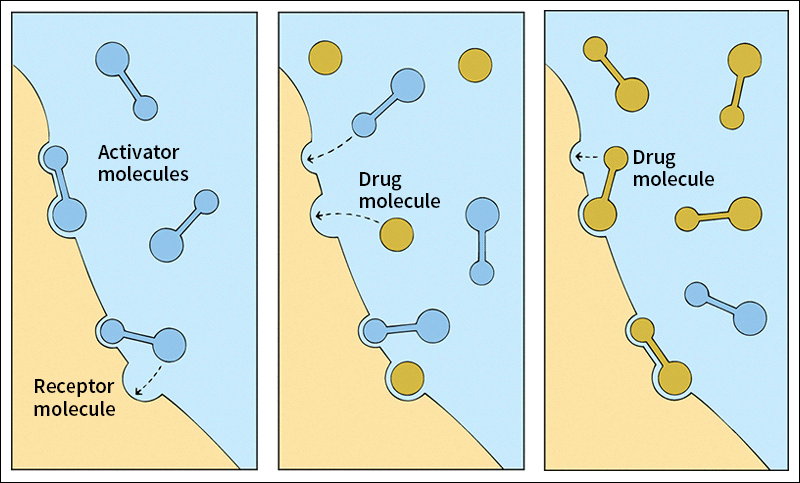Americans Win Nobel Prize in Chemistry
Wednesday, October 10th, 2012October 10, 2012
American scientists Robert J. Lefkowitz of the Howard Hughes Medical Institute in Chevy Chase, Maryland, and Duke University in Durham, North Carolina, and Brian K. Kobilka of Stanford University in Stanford, California, were awarded the 2012 Nobel Prize in chemistry. They received the prize for their research on structures that allow living cells to sense and respond to chemical messages in their environment.
The human body is composed of many millions of cells organized into tissues, organs, and organ systems. In order to function, the cells must be able to sense and respond to stimuli and to communicate so they can work together. Lefkowitz and Kobilka studied structures called G-protein-coupled receptors that are found on nearly all cells in the human body. These receptors detect chemical messengers, including hormones, neurotransmitters, and drugs, so particular cells can react appropriately. The receptors are also an important component of the senses that detect light, odor, and flavor. Scientists had long known that these receptors were made up of so-called G-proteins, but they did not understand how they interacted.
Lefkowitz began his research by studying the effects of a hormone called adrenalin (also called epinephrine). Adrenalin stimulates the heart and relaxes muscles in the small air passages in the lungs. Doctors use it to treat severe allergic reactions and to restore a heartbeat in patients who are suffering cardiac arrest. Lefkowitz tagged chemical substances that affect adrenalin receptors by attaching a radioactive molecule to the substance. He could then see exactly how the molecules interacts with the receptors on the surface of targeted cells.

Drugs and other chemical messengers attach to receptor molecules on cells. (World Book diagram)
Kobilka joined Lefkowitz and began work to understand the genes that control the structure of the receptor and how it interacts with the messenger chemical. In 2011, the scientists were able to visualize and describe the steps at the exact moment when a hormone from outside a cell transfers a signal to the G-protein-coupled receptor inside of the cell.
Scientists have known for decades that up to half of all drugs act through such receptors on cells, though they have not understood exactly how the receptors function. The discoveries by Lefkowitz and Kobilka have been extremely valuable to scientists as they work to develop better drugs to combat such diseases as cancer and diabetes.
Additional World Book articles:


